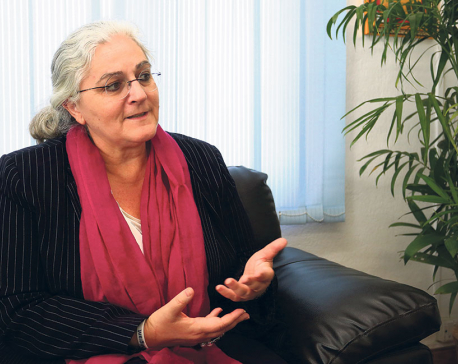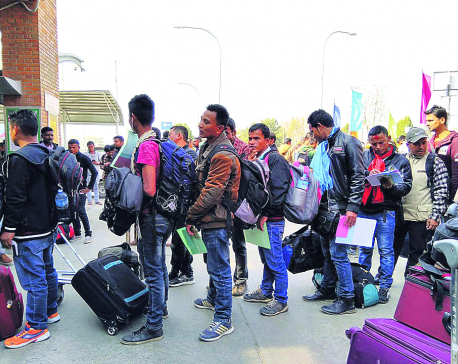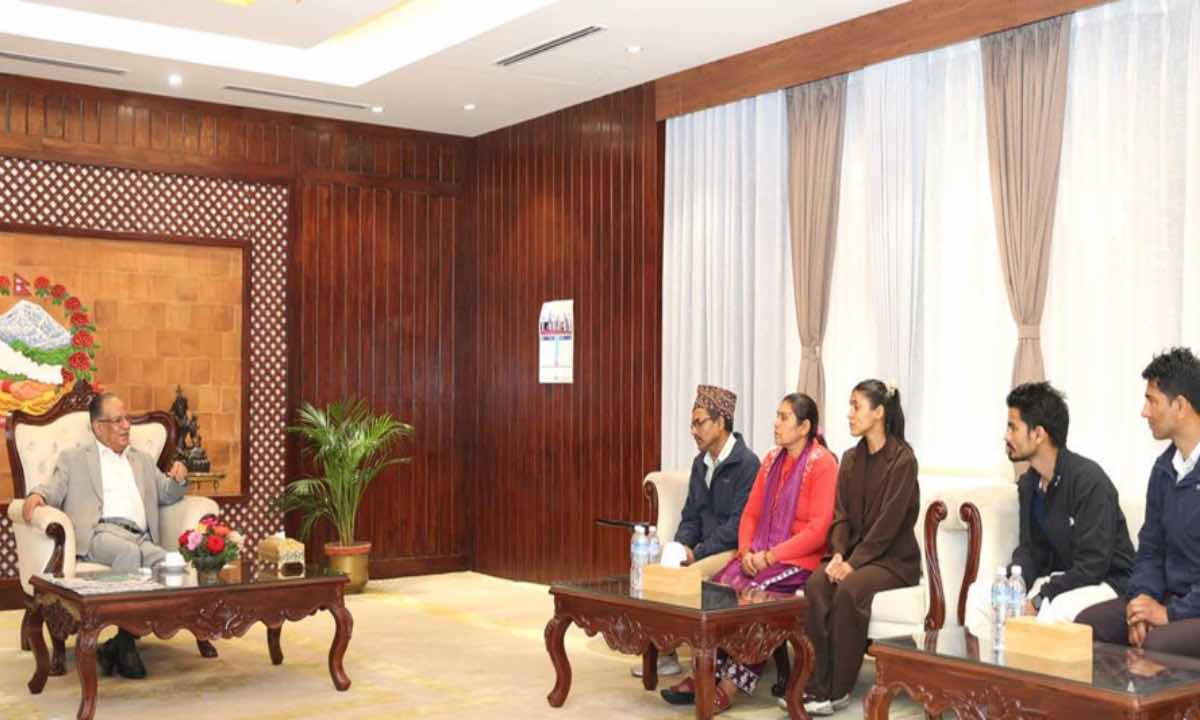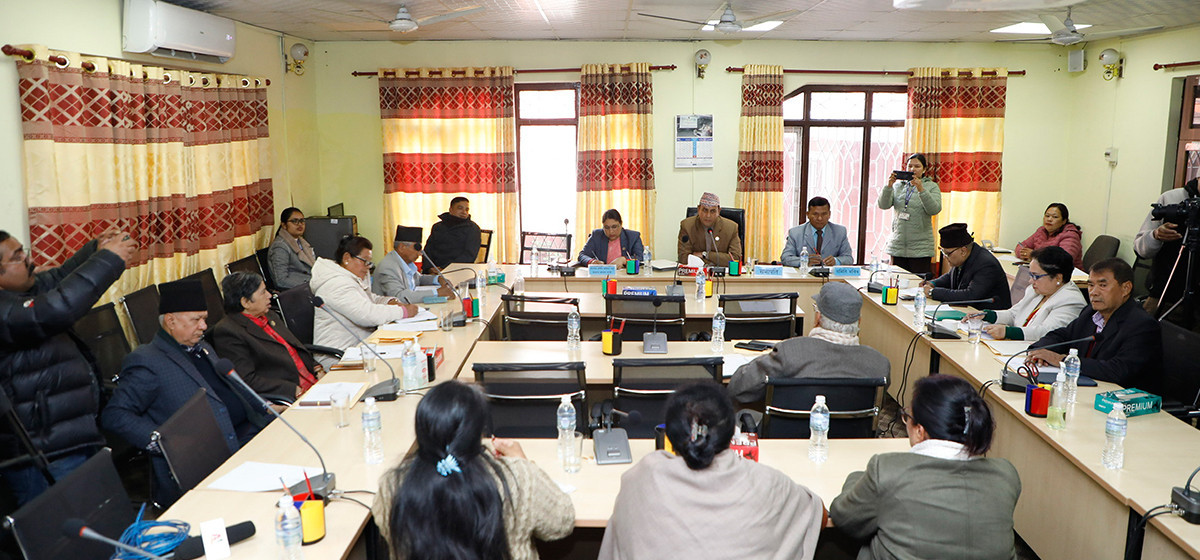
OR


Sabita Nakarmi
(The author is a section officer at the Ministry of Foreign Affairs, Nepal)news@myrepublica.com
How delightful it would be when people do not have to seek recourse to divorce and children do not have to suffer from family separation due to migration?
We usually dream big of having a happy life and family with love, care, money and affluence, prior to migrating to a new destination. Our migration is either for better settlement or academic pursuits or employment opportunities. But is migration always what we dream of? What if those beautiful dreams shatter, family relations break and loving bonds crumble due to the negative consequences of migration?
I was secretly disappointed when I had to work on a number of documents relating to divorce during my stint in a Nepali Mission abroad. People marry, divorce and resettle—as simple as that. Migration has made family relationship as easy and carefree as trying new clothes. Parents these days are prone to pursue their self-pleasure more than thinking about the happiness of family and children. In some cases, women are not satisfied with the family boundary and aspire for more freedom of single life or find someone else with more compatibility. Likewise, some men find better partners with better lifestyle. While in other cases, some women back home keep waiting for years for their men to return whereas men enjoy polygamy at the other end. Human beings have become so selfish and self-centered that well-being, future and happiness of family and children are undermined. Moral ground and ethics are not able to hold a sense of humanity amidst.
Back in Nepal, I am flustered to see so many Nepali people queuing up to make passports with same big dreams of flying abroad for happy life, sufficient money and bright future.
I wonder when people will understand that migration is not always what we dream of. When the country will seriously look into creating a reliable and gainful employment opportunity within.
Facts on realities
In Nepal, migration is a thriving culture in which families often believe that at least one family member in a household needs to go overseas whether for employment or studies or better settlement. That’s why, out of over 258 million (as of 2017) international migrants across the globe, more than four million accounts for Nepali migrants and about 1,500 youths, in average, migrate every day in Nepal. The preferred destinations are India, Malaysia, the Gulf region (primarily Qatar, Saudi Arabia and the UAE), Oman, Bahrain, South Korea and some developed countries including the USA, the UK and Australia. Nepali women prefer going to Lebanon, Kuwait and Israel. Over and above, only 1.5 percent of Nepali migrants are skilled while 24 percent are semi-skilled Nepali and nearly 75 percent are unskilled.
Migration is not actually as fascinating as we think. It brings a little bit of financial gains with a lot of sacrifice. First, naturally the wider presence of Nepalis abroad should help ensure the positive impression of Nepal worldwide. But, will people be able to contribute for positive image of a nation when they themselves struggle in vulnerable situation for their daily livelihood particularly in low-paid menial jobs in Gulf countries? Due to lack of training and skills, they spend their youth in menial jobs and return home with some dollars and old bones, absolutely unsure whether they will be able to find their family intact or not. Their personal interest overshadows the national interest mainly when they do not get decent job and are forced to survive just for existence.
Second, migration not only sends the youthful resources outside, but also creates fertile ground for rising social vices including family separation, illicit relation, abortion, divorce, suicide, drug addiction and family conflict.
The only seemingly positive side of migration is remittance that contributes over 25 percent of the Gross Domestic Product (GDP) supporting Nepal to graduate from LDC status. But can a nation really prosper when its economy is largely dependent on remittance? A country actually progresses when its domestic economy blooms with development of trade, investment, tourism, agriculture and industrialization as well as when its youth finds job within the nation and ultimately become able to contribute for national development.
How good it would be if Nepali people get job in Nepal itself? How proud it would be if Nepali migrants, men and women, are more skilled and professional individuals engaged in decent jobs while travelling abroad? How relieving it would be when female migrants do not fall prey to trafficking and sexual abuse due to poverty and lack of education? How delightful it would be when people do not have to seek recourse to divorce and children do not suffer from family separation due to migration?
Dream to protect
While the global leaders at the United Nations are collectively working to make migration work for all through the Global Compact on Migration (GCM) so as to ensure secured future and equal treatment to all migrants across the world, a least developed landlocked country like Nepal should rather focus on strengthening its own domestic economy first by ensuring fruitful local employment to all citizens within the nation itself. A dream of “prosperous Nepal, happy Nepali” will be possible only if inclusive socio-economic progress with job security exists in the country. Education and vocational training should be more job-oriented. Government, inter-governmental agencies and non-governmental organizations should work collectively to eradicate poverty; to ensure employment opportunities; to make arrangement for organized, structured, regular and documented migration so that no more family bonds are broken, no more Nepali woman faces exploitation and abuse as well as no more dreams of happy life are shattered because of migration.
The author is a Section Officer at Ministry of Foreign Affairs, Nepal
You May Like This

Migration is good. It just has to be done safely
December 18 is marked as International Migrants Day every year. Although both domestic and international migrations have been taking place... Read More...

Social trend of migration effecting more migration
KATHMANDU, Feb 9: Rather than solely due to the lack of job opportunities in the home country, the existing social trend... Read More...

Wellbeing first
The forthcoming UN conference must ensure the wellbeing of migrant workers even if they move from one country to another Read More...




Just In
- Man dies in motorcycle accident in Dhanusha
- Nepal face early setback as four wickets fall in powerplay against UAE
- Australian unemployment rate rises to 3.8 percent in March
- Gold price increases by Rs 700 per tola
- Fire destroys wheat crop in Kanchanpur, Kailali
- Bipin Joshi's family meets PM Dahal
- State Affairs and Good Governance Committee meeting today
- Gold items weighing over 1 kg found in Air India aircraft at TIA














Leave A Comment